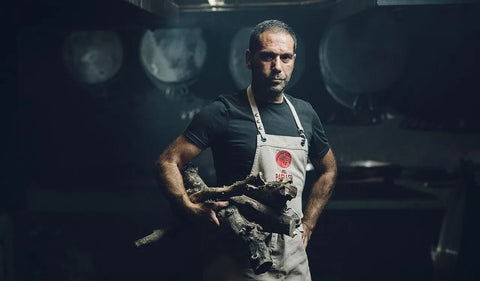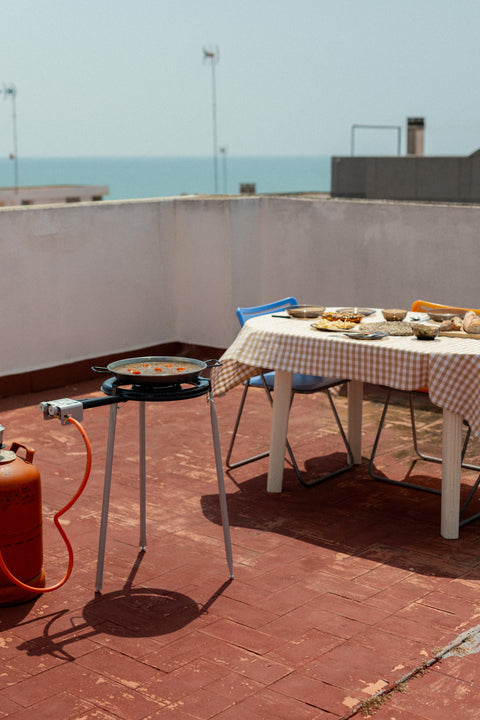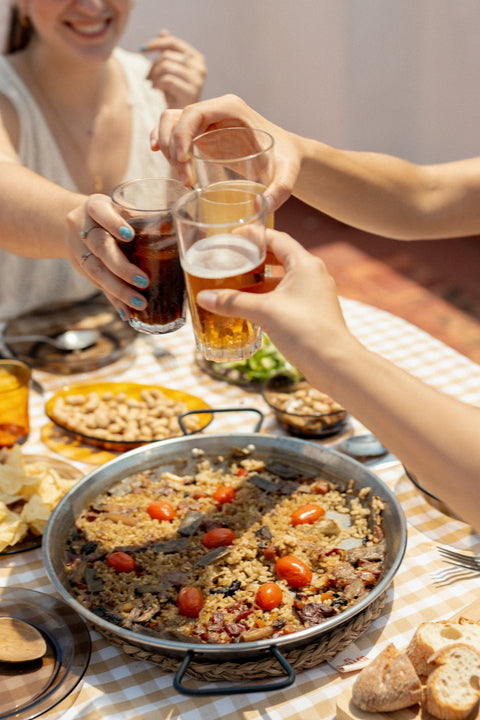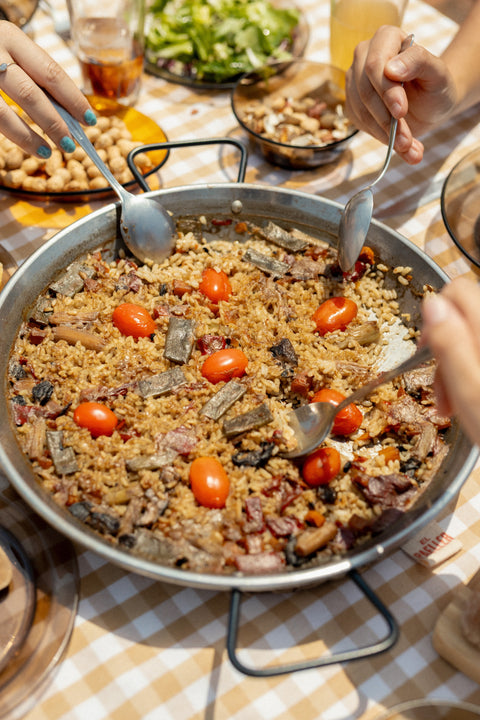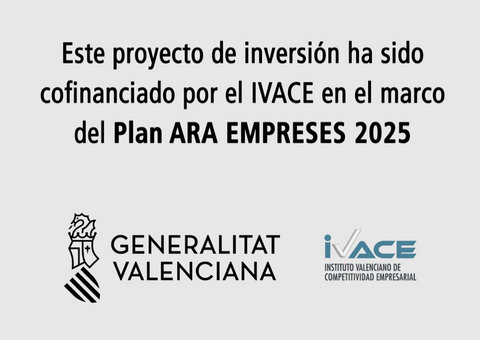"We proved that paella is not a dish of Sunday strollers"
On September 19th, our Executive Chef Rafa Margós had the opportunity to chat with Eduardo Enric from the Levante-EMV newspaper on the occasion of World Day Paella. An opportunity to share impressions, philosophy, and everything behind it. From El Paeller. Here's the interview:Rafa Margós shares his philosophy: "Honesty, local sourcing and seasonal product Rafa Margós brought his father's dream of sharing paella with the world to life. With the The El Paeller formula manages to preserve the paella inside a can or glass jar. The essence of wood-fired paella, making it accessible to any country. The master Paeller shares the key aspects of his project with Levante-EMV.
QUESTION: Where did El Paeller come from? How did the idea come about?
The Paeller originated from an idea my father had in 1995. In 1990, my My father started a paella takeaway business. It was so successful that they had to expand every year. The paella chef. In '95, what he tried to do was make sure the paellas made at my house could be... Traveling further. It doesn't make sense to transport a paella to take away for more than 10 km. Because it cools down. Contact the CSIC (Spanish National Research Council) and they spend a year doing tests. To the The conclusion they reach is to finish the paella, put it in plastic trays and Refrigerate it. That idea died there. Years later, I studied hospitality and we founded in the 2005 the Las Bairetas restaurant, where we have the largest paella pan in the world. Then I remember my father's idea and try to put it into practice, but without I decided to package the paella cooked over a wood fire in plastic. That's how I came up with the idea of cooking everything: the broth, the... Meat, vegetables, just need to add the rice. The first test I did was in a factory. of olives. They didn't turn out badly. The paella had a couple of years' shelf life and could travel. So, I'm trying to develop the business with partners, to take it to a global level, but no I find the right people. In 2013, I met Wikipaella. I'm friends with I approached the founders and told them about the idea. They became interested in 2017. In 2020, We bought an autoclave and a sealer and started doing more serious tests. In Denia, where I made about 70 cans a day, El Corte Inglés buys the product from us. I took advantage of the pandemic and decided to take the plunge. We set up our workshop in Chiva and we are capable of producing between 1,500 and 2,500 cans or glass jars per day. We have a wide variety of products.
QUESTION: What is your philosophy?
Cooking in a way that is very respectful of the environment, from using firewood, to... ingredients, right down to the packaging. Both the can and the glass, which is what we use, They're recyclable. We don't want to see a single piece of plastic. We also like to work with a lot of honesty, lots of local produce and seasonal products.
QUESTION: One of the goals is to make paella accessible anywhere in the Is it well-regarded outside of Spain? Have we done something wrong?
Until a few years ago, we did many things wrong. Paella today is Highly rated by people like Casa Carmela, Vicente Rioja, Rafa Vidal, Toni Montoliu, ourselves. We have proven that paella is not a dish of Sunday lunchers. Thanks to them, paella is starting to gain the importance it deserves. It deserves it. Currently, It's the next trendy dish worldwide. After the Pasta, pizza, sushi, or hamburgers—what's coming is paella. The world wants it. They want to eat paella and learn how to make it. And each one will do it with their own recipe.TO We can't understand why they put chorizo in it, but what we should be doing is... The important thing is that paella is made. The problem might arise when someone sells it as... "Valencian paella".
QUESTION: What does it mean to you that in countries like Germany, Japan, or the United States Is it possible to eat real Valencian paella in Unidos?
It can only be a source of pride. It's also a responsibility. They have to have quality, knowing what it's supposed to taste like.
QUESTION: This year you're participating as a judge in the World Paella Day Cup. What What does an event like this mean?
All these events contribute to the growth and global recognition of They enhance and make the paella more accessible, ensuring that people have the It's interesting. Tourists come to Valencia to eat paella. The more initiatives, the better. The more of these there are, the greater the desire to do things right will be. When there are none You have references; if they give you a bad paella to try, you're going to think that's how the dish is. If You've seen how it's cooked and you've tried several, so you can have an opinion.
QUESTION: What should the perfect paella have?
The perfect paella doesn't exist. In the end, the cook has complete freedom to blend the ingredients. Ingredients however they like. They don't come to the World Paella Day Cup to make paella. Valencian. What we value is harmony and good execution. Rice loose, dry and tasty, and that the whole thing is good.
QUESTION: Besides outsourcing the paella, you have several restaurants. What makes them special?
Las Bairetas de Chiva is a wood-fired paella grill, that's why it's so special. Then there are the from Valencia, Pelayo, Vaqueta and Casa Baldo, which are managed by my brother Pablo Margós. They are primarily restaurants that serve seasonal and locally sourced products.
It was a pleasure to share this conversation with our friends at Levante-EMV, You can read the interview as it was originally published at this link: Levant-emv.com
